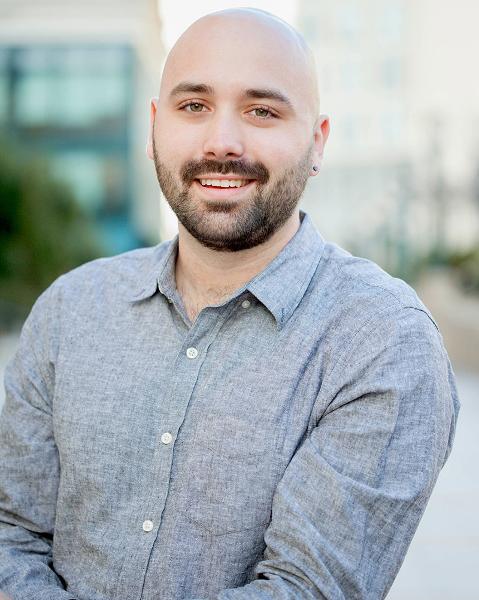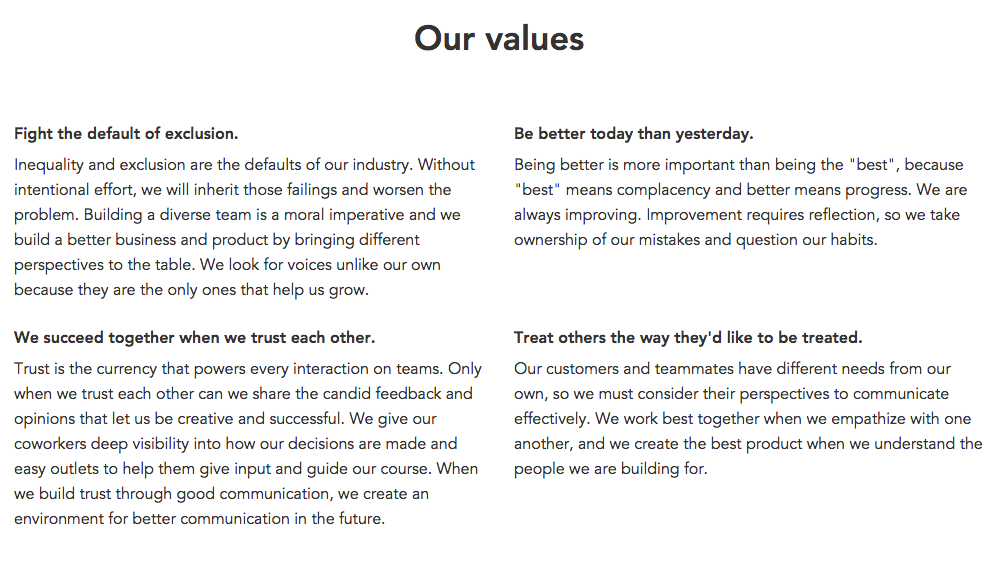The CEO and founder of Clef is trying to get rid of passwords forever.
But Brennen Byrne, better know simply as B, still found a few hundred extra hours to build Clef’s company handbook from scratch—even though the company is currently a team of 7.

“We take building a company really seriously,” he told CultureLab. “Even as a small team, so much of what gets done at Clef isn’t me. It’s important to us to build a great company at the same time as a great product.”
Clef provides secure two-factor authentication without passwords or tokens—an area so crucial that the company got an impressive writeup in The New York Times.
We’re even more inspired by the kind of company culture Clef is creating! Check out their values:

In Episode 7 of CultureLab, I had a great chat with B about creating a nurturing, inclusive work culture from scratch. Plus, Carolyn and I chat about unlimited vacation policies and how they really work. Have a listen:
What you’ll learn from this episode:
- How “unlimited vacation” can lead to no vacation
- How we set goals at Buffer with OKRs
- Vacation expectations around the world
- Managing your energy, not your time
- How good security is an accessibility issue
- The future of passwords
- How to create “values with teeth”
- How “culture fit” can lead to bias and how to hire without it
- How Clef made friends in a new city with lasagna
- Why use a salary formula?
- How negotiation can lead to inequality
Stuff we talk about in this episode:
- OKRs: Here’s what they are
- Clef in the The New York Times
- Shoutout to Ashe Dryden, who helped Clef create their company handbook
- Clef’s open-source company handbook that B wrote with 56(!) policies
- Clef’s very cool values and how they’ve evolved
- Buffer’s salary formula
- Clef Cooks!
- Clef’s salary formula
Further reading
The Unexpected Challenge of Unlimited Vacation Time
How to Create a Secure Password You Can Remember Later: 4 Key Methods
Notable Moments
- 1:00: That time when we didn’t take weekends at Buffer
- 3:2o: What does unlimited vacation really mean?
- Joel and Leo in Mexico!
- 9:21: Carolyn’s last disconnected day
- 12:30: B’s lowkey battle with Facebook
- 13:00: If white = cool
- 14:00: Confess your password sins!
- 15:51: Passwords have 5 years left
- 17:50: “When you get big, you can write your own”
- 19:26: “Startups run outside of policy”
- 21:20: More than 300 companies use Clef’s handbook
- 22:25: Raising the baseline
- 24:00: “Trust is the currency we think is most important to build”
- 31:00: “This is a little intense for me”
- 35:20: Pirates!
- 39:00 BATNA
- 44:30 Writing in a way that comes true
- 47:00 Shoutout to Carolyn’s dad!
Get in touch
- Connect with B: Twitter | website
- Connect with Carolyn on Twitter
- Connect with me, Courtney, on Twitter!
Subscribe to get all our episodes automatically
Ready to subscribe and get all our new episodes automatically? We’ve got ya covered!
If you’re an iTunes listener, click below to find and subscribe. If you’re feeling up to it, we’d really love your ratings and review!

If Google Play is more your style, you can find a link here to find and subscribe. We’d really love it if you’d be keen to share it with anyone who might find it helpful!

Other spots to listen include:
We welcome your feedback anytime on the podcast!
How much vacation time do you take? Do you develop your company culture in any ways that are similar to Clef’s? Let us know what you think about any of the stuff we discussed in this episode!
Try Buffer for free
190,000+ creators, small businesses, and marketers use Buffer to grow their audiences every month.


